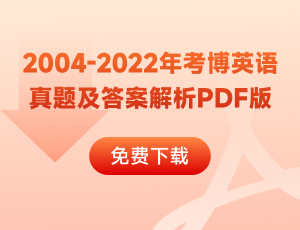Passage Two
At the heart of the debate over illegal immigration lies one key question: are immigrants good or bad for the economy? The American public overwhelmingly thinks they’re bad. Yet the consensus among most economists is that immigration, both legal and illegal, provides a small net boost to the economy. Immigrants provide cheap labor, lower the prices of everything from farm produce to new homes, and leave consumers with a little more money in their pockets. So why is there such a discrepancy between the perception of immigrants’ impact on the economy and the reality?
There are a number of familiar theories. Some argue that people are anxious and feel threatened by an inflow of new workers. Others highlight the strain that undocumented immigrants pace on public services, like schools, hospitals, and jails. Still others emphasize the role of race, arguing that foreigners add to the nation’s fears and insecurities. There’s some truth to all these explanations, but they aren’t quite sufficient.
To get a better understanding of what’s going on, consider the way immigration’s impact is felt. Though its overall effect may be positive, its costs and benefits are distributed unevenly. David Card, an economist at UC Berkeley, notes that the ones who profit most directly from immigrants’ low-cost labor are businesses and employers --- meatpacking plants in Nebraska, for instance, or agricultural businesses in California. Granted, these producers’ savings probably translate into lower prices at the grocery store, but how many consumers make that mental connection at the checkout counter? As for the drawbacks of illegal immigration, these, too, are concentrated. Native low-skilled workers suffer most from the competition of foreign labor. According to study by George Borjas, a Harvard economist, immigration reduced the wages of American high-school dropouts by 9% between 1980-2000.
Among high-skilled, better-educated employees, however, opposition was strongest in states with both high numbers of immigrants and relatively generous social services. What worried them most, in other words, was the fiscal burden of immigration. That conclusion was reinforced by another finding: that their opposition appeared to soften when that fiscal burden decreased, as occurred with welfare reform in the 1990s, which curbed immigrants’ access to certain benefits.
The irony is that for all the overexcited debate, the net effect of immigration is minimal. Even for those most acutely affected---say, low-skilled workers, or California residents---the impact isn’t all that dramatic. “The unpleasant voices have tended to dominate our perceptions,” says Daniel Tichenor, a political science professor at the University of Oregon. “But when all those factors are put together and the economists calculate the numbers, it ends up being a net positive, but a small one.” Too bad most people don’t realize it.
41. What can we learn from the first paragraph?
A. Whether immigrants are good or bad for the economy has been puzzling economists.
B. The American economy used to thrive on immigration but now it’s a different story.
C. The consensus among economists is that immigration should not be encouraged.
D. The general public thinks differently from most economists on the impact of immigration.
42. In what way does the author think ordinary Americans benefit from immigration?
A. They can access all kinds of public services.
B. They can get consumer goods at lower prices.
C. They can mix with people of different cultures.
D. They can avoid doing much of the manual labor.
43. Why do native low-skilled workers suffer most from illegal immigration?
A. They have greater difficulty getting welfare support.
B. They are more likely to encounter interracial conflicts.
C. They have a harder time getting a job with decent pay.
D. They are no match for illegal immigrants in labor skills.
44. What is the chief concern of native high-skilled, better-educated employees about the inflow of immigrants?
A. It may change the existing social structure.
B. It may pose a threat to their economic status.
C. It may lead to social instability in the country.
D. It may place a great strain on the state budget.
45. What is the irony about the debate over immigration?
A. even economists can’t reach a consensus about its impact.
B. Those who are opposed to it turnout to benefit most from it.
C. People are making too big a fuss about something of small impact.
D. There is no essential difference between seemingly opposite opinions.
如下载通道已经关闭,请扫描下方二维码!

通用考博英语精品课程【节选】-1元领!
摸清考试命脉,有技巧有方法有准备地进入到考博英语中。

 资料下载
资料下载
【必看】考博英语词汇10000例精解
发布时间:2020-09-02关注新东方在线服务号
回复【10000】免费获取
医学考博英语作文核心基础词汇整理
发布时间:2020-04-15关注新东方在线服务号
回复【医学考博】获取
医学考博英语阅读理解练习资料
发布时间:2020-04-15关注新东方在线服务号
回复【医学考博】获取
法学考博英语高频词汇word版
发布时间:2020-04-15关注新东方在线服务号
回复【医学考博】获取
医学博士英语统考真题及解析
发布时间:2019-12-26关注新东方在线服务号
回复【考博真题】获取
全国医学博士外语统一考试真题
发布时间:2019-12-26关注新东方在线服务号
回复【考博真题】获取
中科院考博英语复习备考实战经验分享
发布时间:2019-12-26关注新东方在线服务号
回复【考博经验】获取
中科院考博英语真题练习资料
发布时间:2019-12-26关注新东方在线服务号
回复【考博真题】获取

关注新东方在线服务号
关注新东方在线服务号,
免费获取考博必看干货资料

 推荐阅读
推荐阅读
考博生们在进行考博复习的时候,历年的考博真题是不可多得的重要资料,新东方在线考博频道整理了南京大学2009年考博英语真题给大家,希
来源 : 网络 2021-01-19 15:30:31 关键字 : 考博英语真题
考博生们在进行考博复习的时候,历年的考博真题是不可多得的重要资料,新东方在线考博频道整理了南京大学2003年考博英语真题,希望考博
来源 : 网络 2021-01-19 15:27:34 关键字 : 考博英语真题
考博生们在进行考博复习的时候,历年的考博真题是不可多得的重要资料,新东方在线考博频道整理了南京大学2007年考博英语真题给大家,希
来源 : 网络 2021-01-19 15:26:45 关键字 : 考博英语真题
考博生们在进行考博复习的时候,历年的考博真题是不可多得的重要资料,新东方在线考博频道整理了南京大学2006年考博英语真题给大家,希
来源 : 网络 2021-01-19 15:25:37 关键字 : 考博英语真题
考博生们在进行考博专业课复习的时候研究生院历年的考博专业课真题是不可多得的重要资料,新东方在线考博频道整理了沈阳工业大学2019考
来源 : 沈阳工业大学 2020-12-01 14:52:20 关键字 : 考博真题


 考博好课推荐
考博好课推荐
1节课解读博士考试,掌握备考秘诀!
价格 : ¥0元
基础薄弱,备考迷茫,送纸质资料
价格 : ¥2280元
资深教师,教学简明,直接有效!
价格 : 0元
 资料下载
资料下载
关注新东方在线服务号
回复【10000】免费获取
关注新东方在线服务号
回复【医学考博】获取
关注新东方在线服务号
回复【医学考博】获取
关注新东方在线服务号
回复【医学考博】获取
关注新东方在线服务号
回复【考博真题】获取
关注新东方在线服务号
回复【考博真题】获取
关注新东方在线服务号
回复【考博经验】获取
关注新东方在线服务号
回复【考博真题】获取

 阅读排行榜
阅读排行榜
 相关内容
相关内容